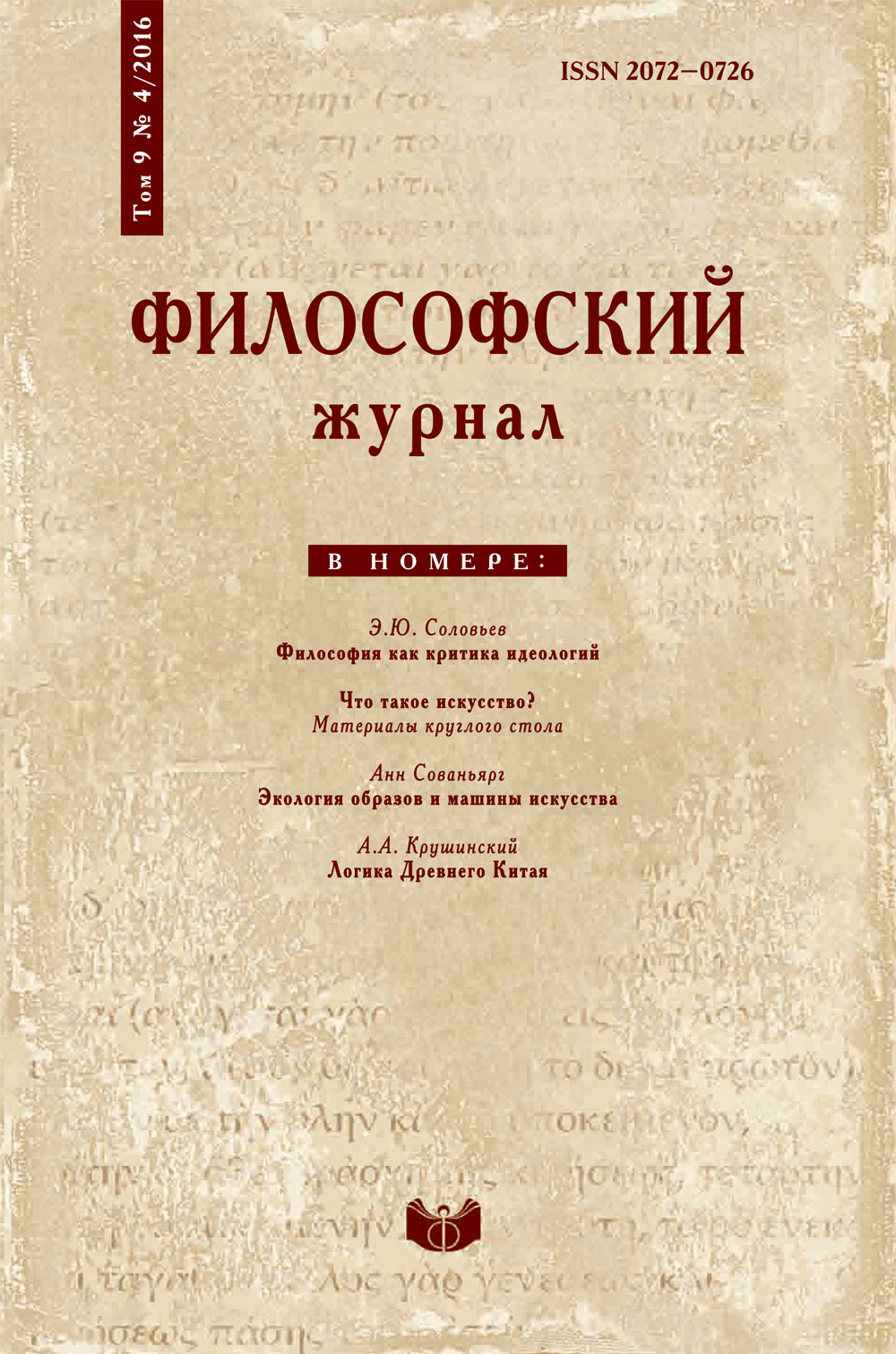Philosophy as critique of ideologies. Part I
DOI:
https://doi.org/10.21146/2072-0726-2016-9-4-5-17Keywords:
philosophy, ideology, information warfare, presumption of discredit, global missions, 'open history' conceptAbstract
The author brings under scrutiny the relation between philosophy and ideology in the situation of information warfare. It is characterized by the phenomenon of mirror ideological symmetry where both sides of the conflict tend to employ the same type of sophistry and casuistry. This ideological symmetry results in mobilizing the mass audiences which serves two main intentions: (a) admonishing and (b) inspiring them toward a suggested project. The admonition effect is reached by means of stirring up preemptive distrust, creating the 'enemy image', implanting discrediting evidence and propagating a cult of vigilance. The standard discourse of ideological admonition is a 'collage of separate information bits' which sanctions logical impudence and the loss of logical memory. This paper proposes to ground the logical defence of consciousness and of thinking in the very nature of discursivity, by resorting to logical and linguistic analysis. The inspiring projects neatly conform to the notion of mission; they are still afloat, fraught with dangerous geopolitical myths, interethnic intolerance and revived historicist speculations. According to the author, to find a philosophical response to such idealogical threats one needs to promote a culture of sceptical verification of social expectations and hopes, to observe a strict distinction between a programme and an ideal (or goal), and to further develop the concept of open history.






